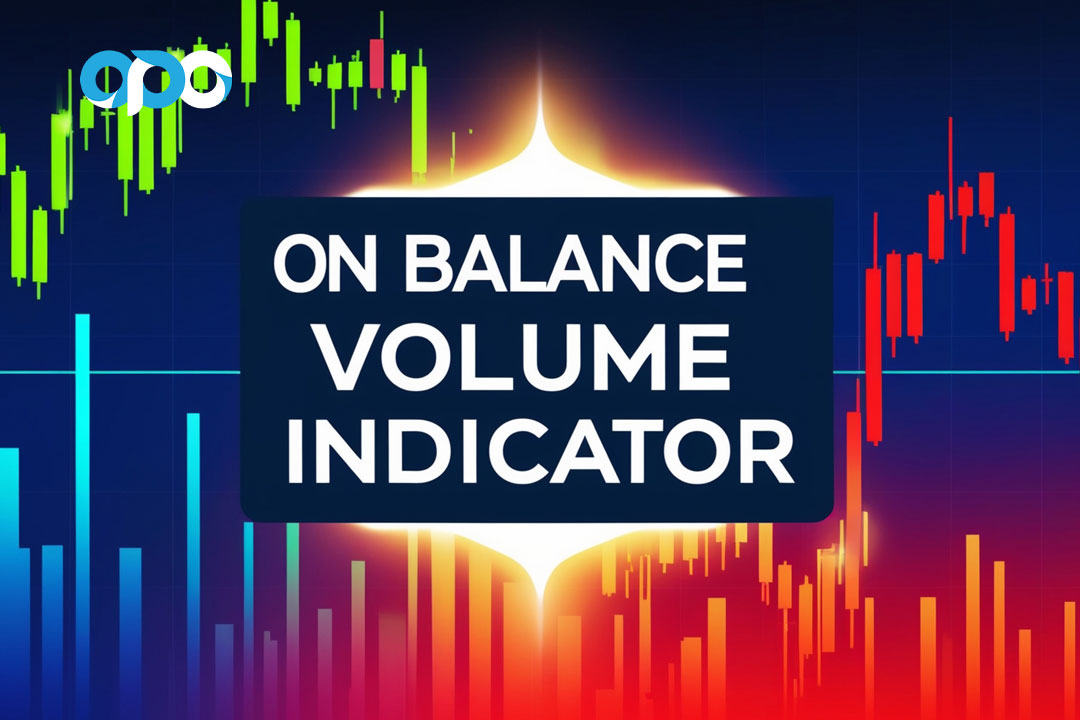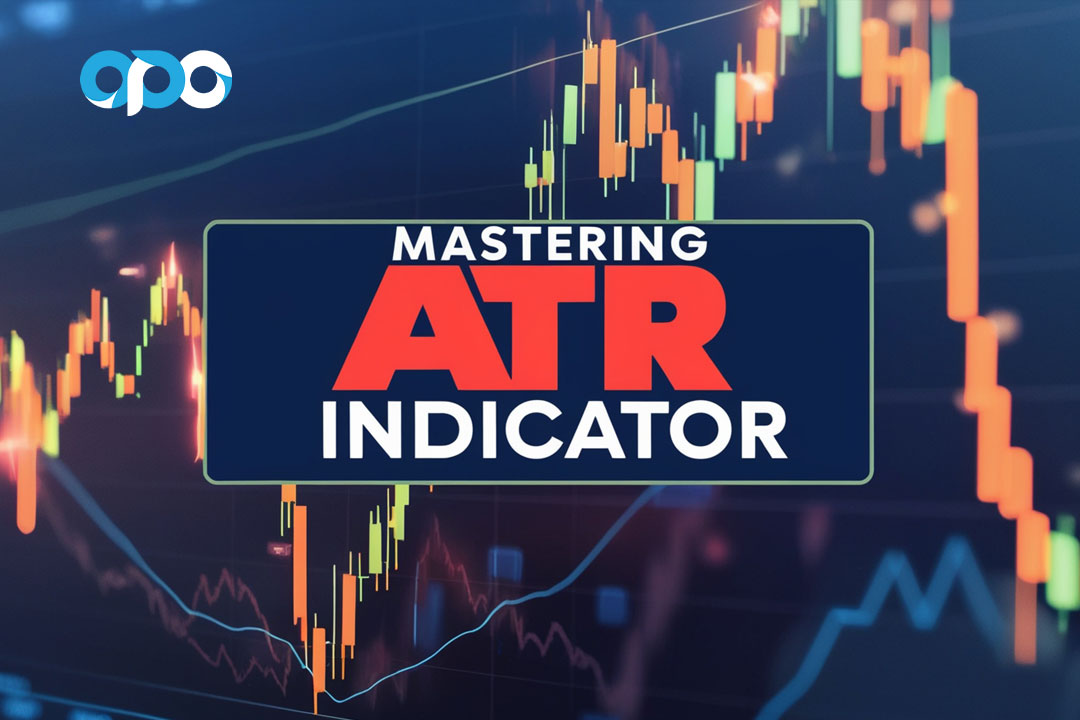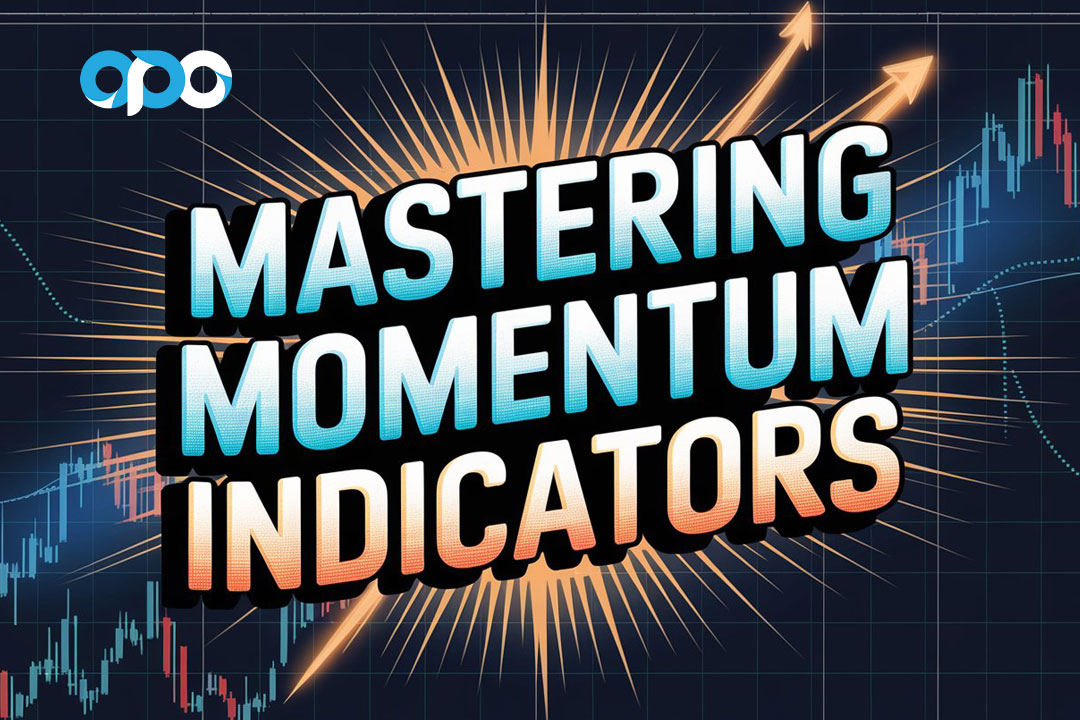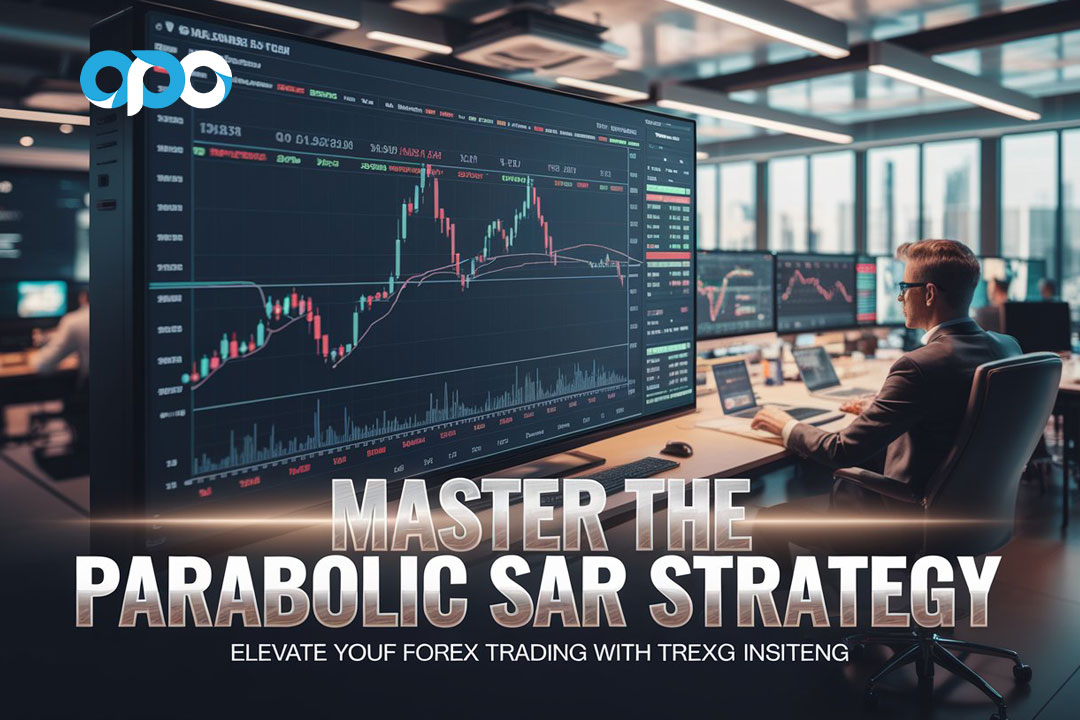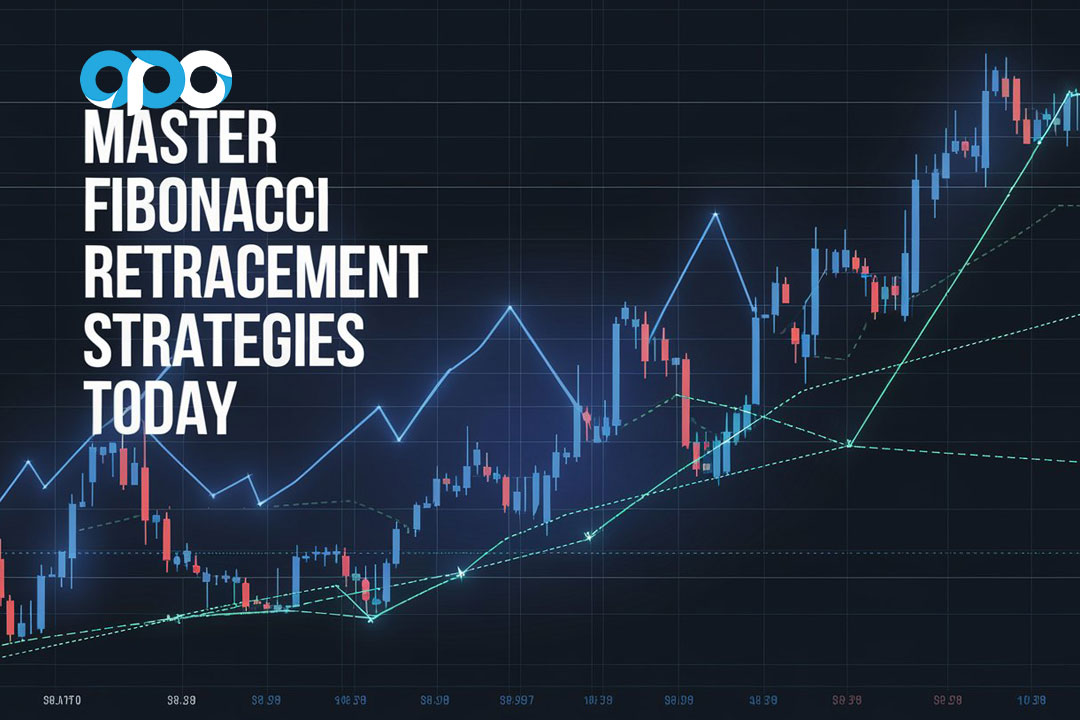The allure of the foreign exchange market, also known as Forex, is undeniable. With trillions of dollars traded daily, it beckons aspiring traders with the promise of substantial profits by capitalizing on currency fluctuations. But for beginners, a crucial question arises: how much can a beginner forex trader realistically make?
The truth is, there’s no magic formula. Unlike a salaried job, forex trading success hinges on a multitude of factors, some within your control and others external. This expanded article delves deeper into the world of forex profitability, exploring the potential rewards, the factors influencing your success, and setting realistic expectations for beginners. We’ll equip you with essential strategies and resources to navigate your forex trading journey with a clearer understanding of the risks and rewards involved.
Unveiling the Profitability Potential of Forex Trading: A Spectrum of Possibilities
Forex trading offers a spectrum of profit potential, with some successful traders generating significant income. However, it’s vital to understand that these are outliers, not the norm. Most beginners experience a period of learning and refinement before achieving consistent profitability.
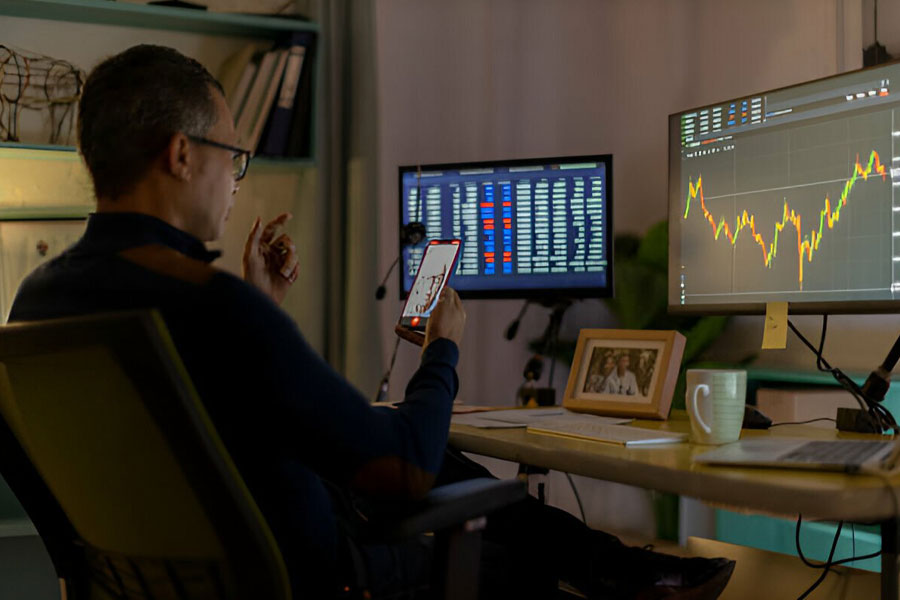
- Short-Term Gains: Day trading, a strategy focused on exploiting short-term price movements within a single day, allows for frequent (but potentially smaller) profits. Day traders may target daily profits of a few percentage points of their account balance, depending on their risk tolerance and trading frequency.
- Long-Term Gains: Positional trading, which involves holding positions for days, weeks, or even months, aims to capitalize on larger market trends. Positional traders might target monthly returns of 5-10%, seeking to capture broader market movements rather than intraday volatility.
- Scalping: This high-frequency trading strategy involves entering and exiting positions very quickly, often within seconds or minutes, to profit from small price movements. Scalpers typically rely on automated algorithms or high levels of technical analysis expertise to identify these fleeting opportunities.
The specific profit potential depends heavily on factors like:
- Starting Capital: A larger starting balance allows for bigger positions and potentially higher returns, but also carries greater risk. Beginners are advised to start small and gradually increase their trading size as their skills and confidence grow.
- Trading Frequency: More frequent trades translate to more opportunities for profit, but also increased transaction costs and the risk of overtrading. Striking a balance between capturing opportunities and managing costs is crucial.
- Risk Management: Implementing sound risk management strategies, like stop-loss orders, helps mitigate potential losses and protect your capital. Setting clear risk parameters before entering any trade is essential.
- Market Conditions: Volatile markets offer more opportunities for profit, but also heighten risk. Understanding how economic data releases, political events, and global news can impact market sentiment is vital for navigating volatile periods.
Examples:
Let’s consider two scenarios with different starting capital and risk tolerance:
- Scenario 1: A beginner starts with a $1,000 account and aims for a modest 2% monthly return. With proper risk management, they might target daily profits of $2-$3, focusing on low-risk opportunities and potential long-term consistency.
- Scenario 2: A more experienced trader with a $10,000 account might aim for a 10% monthly return through a combination of day trading and swing trading (holding positions for a few days to a week). Their daily profit targets could be higher, in the range of $30-$50, but they would also accept a higher level of risk to achieve those gains.
Remember: These are just examples. Your actual results may vary significantly depending on your individual circumstances, trading approach, and market conditions.
Factors Affecting Your Profitability in Forex: A Multifaceted Landscape
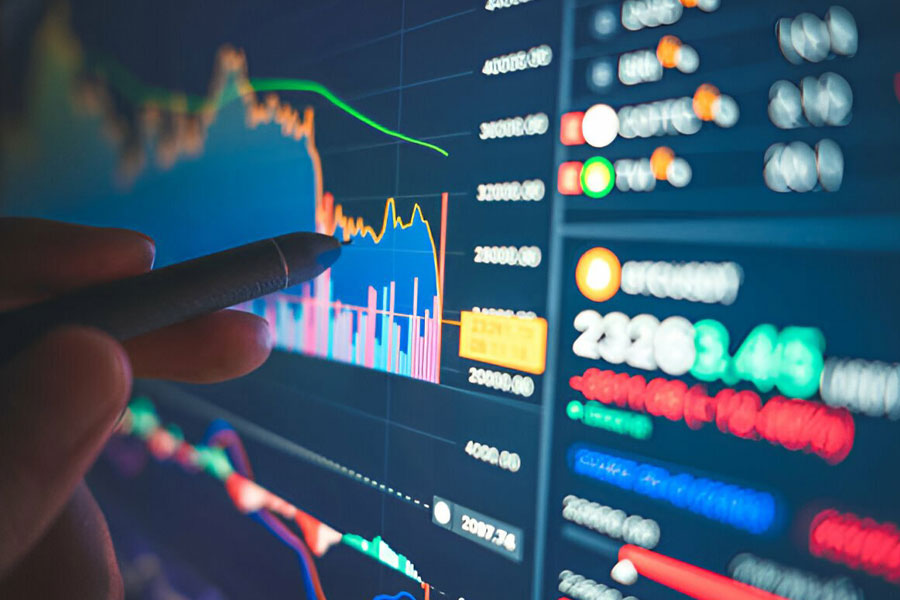
Several factors influence your forex trading profitability, creating a dynamic landscape that requires continuous adaptation. Here’s a closer look at some of the key elements:
- Trading Strategy: Choosing a well-defined trading strategy that aligns with your personality, risk tolerance, and available time commitment is crucial. Popular strategies include technical analysis (focusing on charts and indicators) and fundamental analysis (considering economic factors). Some traders may also explore a combination of both approaches.
- Discipline and Mindset: Forex trading requires discipline. Sticking to your trading plan, managing emotions, and avoiding impulsive decisions are key to success. Developing a patient and focused mindset that prioritizes long-term objectives over short-term gains is essential.
- Market Knowledge: A deep understanding of the forex market, how currencies interact, and the factors driving price movements is crucial for making informed trading decisions. This includes staying updated on global economic trends, central bank policies, and geopolitical events that can impact currency valuations.
- Trading Education: Continuous learning is paramount. Invest time in forex education, explore trading resources, and practice with a demo account before risking real capital. Attend workshops, webinars, or online courses to enhance your knowledge and refine your trading skills.
- Broker Selection: Choosing a reputable and regulated forex broker with competitive fees and a user-friendly platform impacts your trading experience and profitability. Research different brokers, compare their offerings, and consider factors like trading costs, minimum deposit requirements, and customer support.
Read more: Turn $100 into $1000 in Forex
Setting Realistic Expectations and Understanding Forex Trading Risks: Navigating the Uncertainties
While the potential for high profits exists, forex trading also carries inherent risks. Before you embark on your trading journey, it’s crucial to set realistic expectations and understand the potential pitfalls:
- Losses are Inevitable: Even experienced traders experience losses. The key is to ensure your winning trades outweigh your losing ones by developing a sound trading strategy, implementing effective risk management practices, and maintaining emotional discipline.
- The Market is Unpredictable: Economic data, political events, and global news can drastically shift market sentiment, leading to unexpected losses. Staying informed about market developments and adapting your trading approach accordingly is essential.
- High Leverage Can Be a Double-Edged Sword: Many forex brokers offer leverage, allowing you to control larger positions with a smaller investment. While this can amplify profits, it also magnifies losses. Beginners should be cautious with leverage and start with lower leverage ratios to minimize potential losses.
Tips for Managing Risk:
- Start Small: Begin with a small trading account to minimize potential losses while you hone your skills and develop a consistent trading approach.
- Develop a Risk Management Plan: Establish clear rules for entry and exit points, position sizing (the amount risked per trade), and stop-loss orders to limit potential losses.
- Focus on Learning and Consistency: Prioritize learning and refining your trading strategies before chasing quick profits. Consistency in your approach and adherence to your risk management plan are key to long-term success.
Setting Financial Goals for Beginner Forex Traders: A Roadmap for Success
Setting financial goals is an essential step for any aspiring forex trader. It provides direction, motivation, and a framework to measure progress. Here’s a guide to setting realistic and achievable forex trading goals:
1. Define Your Time Horizon:
- Short-Term Goals (1-3 Months): Focus on mastering the basics, developing trading strategies, and building confidence. Set achievable profit targets, such as a 2-5% monthly return.
- Medium-Term Goals (3-12 Months): Refine your trading skills, expand your knowledge, and experiment with different strategies. Aim for a consistent profit pattern, such as a 5-10% quarterly return.
- Long-Term Goals (1+ Years): Establish a sustainable trading approach, generate a steady income stream, and potentially build a sizable trading capital. Target consistent annual returns, such as 10-20%.
2. Consider Your Risk Tolerance:
- Low Risk: Prioritize capital preservation and focus on smaller, consistent gains. Set conservative profit targets and implement strict risk management strategies.
- Moderate Risk: Balance risk and reward, aiming for moderate profit margins. Employ well-defined risk management practices and gradually increase position sizes as your skills improve.
- High Risk: Pursue higher potential returns, accepting the possibility of larger losses. Implement robust risk management strategies and maintain a strong emotional discipline.
3. Adjust Goals Based on Performance:
- Regularly Evaluate: Review your progress at least quarterly, assessing your wins, losses, and overall profitability.
- Adapt and Adjust: If your goals are too ambitious, consider scaling them back. If they’re too conservative, consider gradually increasing them.
- Maintain Flexibility: Be prepared to adjust your goals based on market conditions, personal circumstances, and your evolving trading skills.
Strategies for Forex Success for the Beginner Trader: A Practical Toolkit
Navigating the forex market as a beginner requires a combination of knowledge, discipline, and strategic thinking. Here are some effective strategies to enhance your chances of success:
1. Educate Yourself:
- Learn Forex Basics: Start by understanding the fundamentals of forex trading, including currency pairs, pip values, and trading platforms.
- Explore Trading Strategies: Research various trading strategies, such as technical analysis, fundamental analysis, and scalping.
- Seek Guidance: Enroll in forex trading courses, read books and articles, and consider mentorship from experienced traders.
2. Develop a Trading Plan:
- Define Your Approach: Determine your trading style, risk tolerance, and profit targets.
- Establish Entry and Exit Criteria: Identify clear rules for entering and exiting trades based on your chosen strategy. For instance, you might enter a trade when a specific technical indicator crosses a certain level and exit when it reaches a different level.
- Implement Risk Management: Set stop-loss orders to limit potential losses and define position sizing guidelines based on your risk tolerance and account size.
3. Practice with a Demo Account:
- Gain Experience: Utilize a demo account provided by your forex broker to practice trading without risking real capital.
- Refine Strategies: Test different trading strategies, experiment with indicators, and backtest your approach using historical data to evaluate its effectiveness.
- Develop Confidence: Gain familiarity with the trading platform and build confidence in your decision-making.
4. Start Small and Gradually Increase Stakes:
- Minimize Initial Risk: Begin with small trading amounts to minimize potential losses while you gain experience and refine your skills.
- Focus on Learning: Prioritize learning and refining your skills over chasing quick profits. Consistent improvement and adherence to your trading plan will lay the foundation for long-term success.
- Increase Gradually: As your skills and confidence grow, gradually increase your trading capital and position sizes. Remember, discipline and risk management are key to sustainable growth.
5. Maintain Emotional Discipline:
- Control Emotions: Avoid impulsive trading decisions driven by fear or greed. These emotions can cloud your judgment and lead to poor trading outcomes.
- Stick to Your Plan: Follow your trading plan consistently, even during market fluctuations. Don’t let emotions tempt you to deviate from your strategy or risk management guidelines.
- Learn from Mistakes: Analyze your losing trades to identify areas for improvement and avoid repeating errors. Use these experiences as learning opportunities to refine your approach.
6. Stay Updated and Adapt:
- Monitor Market News: Keep abreast of economic news, political events, and global developments that could impact the forex market. These factors can influence currency valuations and create trading opportunities.
- Adapt to Changing Conditions: Adjust your trading strategies and risk management practices based on evolving market conditions. Be flexible and prepared to adapt your approach as the market landscape changes.
- Continuous Learning: Never stop learning. Forex trading is a dynamic field, and continuous education is essential for long-term success. Stay updated on new trading techniques, market trends, and economic developments.
Read more: How much can I make with $100 in Forex?
Additional Resources for Beginner Forex Traders: A Comprehensive Guide

The world of forex trading offers a wealth of resources to support beginners on their journey to success. Here are some valuable resources to explore:
- Online Forums and Communities: Engage with online forex trading forums and communities to connect with experienced traders, exchange ideas, and gain insights from others’ experiences.
- Forex Trading Blogs and Websites: Numerous forex trading blogs and websites provide valuable information, market analysis, and educational resources. Subscribe to reputable sources and stay informed about market developments.
- Forex Trading Books and eBooks: A wide range of forex trading books and eBooks offer in-depth knowledge and strategies for successful trading. Choose books from experienced authors and reputable publishers.
- Forex Trading Webinars and Seminars: Attend forex trading webinars and seminars to learn from experts, gain insights into market trends, and refine your trading skills.
- Professional Forex Trading Courses: Consider enrolling in professional forex trading courses to gain a structured and comprehensive understanding of the market, trading strategies, and risk management techniques.
Conclusion: Embarking on Your Forex Trading Journey with Realistic Expectations and a Strategic Approach
Forex trading presents the potential for significant rewards, but it’s crucial to approach it with realistic expectations, a commitment to learning, and a well-defined trading plan. Remember, success in forex trading is not a sprint but a marathon. It requires patience, discipline, and continuous improvement. By equipping yourself with knowledge, strategies, and risk management practices, you can increase your chances of achieving your forex trading goals.
As you embark on your forex trading journey, never forget the importance of emotional discipline. Avoid impulsive decisions driven by fear or greed, and stick to your trading plan. Learn from your mistakes, adapt to changing market conditions, and never stop learning. With dedication and a strategic approach, you can navigate the forex market with a greater understanding of the risks and rewards involved, paving the way for potential long-term success.
Remember, forex trading is a complex and challenging endeavor that requires dedication, discipline, and a willingness to learn continuously. While the potential for high rewards exists, it’s crucial to approach forex trading with realistic expectations, a focus on risk management, and a commitment to continuous learning. By equipping yourself with the necessary knowledge, strategies, and resources, you can increase your chances of achieving your forex trading goals and navigating the market with a greater understanding of the risks and rewards involved.
What is the average profit for a beginner forex trader?
The average profit for a beginner forex trader varies significantly depending on individual factors like trading skills, risk tolerance, and market conditions. However, it’s realistic to aim for modest returns of 2-5% per month in the initial stages. Focus on learning, developing a consistent trading approach, and implementing sound risk management practices to lay the foundation for long-term profitability.
Can I make a living from forex trading as a beginner?
While it’s possible to achieve financial success in forex trading, it’s not a get-rich-quick scheme. Building a sustainable trading career as a beginner requires dedication, discipline, a significant investment of time and effort, and continuous learning. Most successful traders take years of experience, consistent learning, and risk management to generate a reliable income from forex trading.
What are the biggest risks in forex trading?
The biggest risks in forex trading include:
Market Volatility: The forex market is inherently volatile, with prices constantly fluctuating due to various factors like economic data releases, political events, and global news. This unpredictability can lead to unexpected losses.
Leverage: Many forex brokers offer leverage, allowing traders to control larger positions with a smaller investment. While leverage can amplify profits, it also magnifies losses, making it crucial to use it responsibly and with a clear understanding of the risks involved.
Emotional Trading: Letting emotions like fear or greed dictate trading decisions can lead to impulsive actions and poor trading outcomes. Maintaining emotional discipline and sticking to a well-defined trading plan are essential for long-term success.
Lack of Knowledge and Preparation: Entering forex trading without proper knowledge, understanding of market dynamics, and a well-defined trading plan is a recipe for failure. Dedicate time to learning, developing a strategy, and practicing with a demo account before risking real capital.
What are some common mistakes beginner forex traders make?
Common mistakes beginner forex traders make include:
Chasing Quick Profits: Focusing on immediate gains rather than long-term sustainable trading can lead to risky decisions and potential losses. Prioritize learning, refining your skills, and implementing sound risk management practices over chasing unrealistic profit targets.
Ignoring Risk Management: Failing to implement proper risk management strategies, such as stop-loss orders and position sizing limits, exposes traders to excessive losses. Develop and adhere to a risk management plan that aligns with your risk tolerance and trading approach.
Overtrading: Excessive trading, driven by emotions or the desire to make up for losses, can lead to poor decision-making and increased transaction costs. Stick to your trading plan, avoid impulsive trades, and allow time for market analysis before entering new positions.
Lack of Discipline: Deviating from a trading plan due to emotional impulses or market fluctuations can hinder long-term success. Develop discipline, stick to your strategy, and avoid letting emotions cloud your judgment.
Neglecting Education: Failing to continuously learn and refine trading skills can leave traders ill-equipped to adapt to market changes and make informed decisions. Dedicate time to learning, explore new strategies, and seek guidance from experienced traders or mentors.
What are some resources for learning forex trading?
Numerous resources are available for learning forex trading, including:
Online Courses: Reputable online platforms offer comprehensive forex trading courses covering various aspects of the market and trading strategies. Enroll in courses from experienced instructors and reputable providers.
Books and Articles: A wealth of books and articles provide in-depth knowledge about forex trading, technical analysis, fundamental analysis, and risk management. Choose books from experienced authors and reputable publishers.
Forex Blogs and Forums: Engaging with forex blogs and forums allows traders to connect with experienced traders, exchange ideas, and stay updated on market developments. Join reputable forums with active communities and engage in meaningful discussions.
Demo Accounts: Demo accounts offered by forex brokers provide a risk-free environment to practice trading strategies and gain familiarity with trading platforms. Utilize demo accounts to test your skills, refine your approach, and build confidence before risking real capital.
Mentorship: Seeking mentorship from experienced traders can provide valuable guidance, personalized feedback, and insights into the practical aspects of forex trading. Find mentors with a proven track record and a willingness to share their knowledge and expertise.


